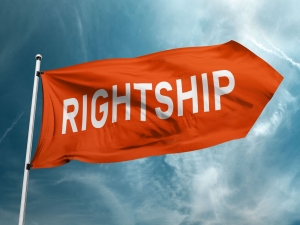


(Posted on 25/10/21)
RightShip, the world’s biggest third party maritime due diligence organisation and safety experts, has argued that the IMO’s Energy Efficiency Existing Ship Index (EEXI) and Carbon Intensity Indicator (CII) to reduce greenhouse gas (GHG) emissions slated for 2023 may be too slow to enforce change by only factoring in operational considerations, missing out on the crucial emissions reduction capabilities of the Energy Efficiency Design Index (EEDI).
RightShip’s latest review reveals the IMO’s recent announcement fails to account for potential GHG savings through mandated design minimums. It states that for existing vessels to meet the EEXI, the IMO will be relying almost entirely on overridable engine power limitations (EPLs) i.e., running vessels at a slower speed – doing little to pave the way for the technology needed for long-term industry transformation.
RightShip CEO, Steen Lund, said, “At RightShip, we work with global sectors that are under a lot of pressure to decarbonise. Whether it’s oil and gas, renewables, or other heavy industry, de-risking the vessel selection process and eliminating unnecessary emissions can have a big impact on harm reduction for people and planet.
“We support the IMO’s commitment to new carbon emissions regulations. However, RightShip is committed to working towards a maritime industry that causes zero harm, and we have concerns about the limitations associated with the EEXI. To achieve industry goals, we must seek out the most innovative solutions and as such, we welcome all opportunities to collaborate with the industry to develop transformative results.”
As part of its efforts to accelerate the decarbonisation of the industry, RightShip has been enabling superior chartering decisions through technology using its GHG Rating tool since 2012. This tool provides a systematic, transparent way to gain a competitive advantage when selecting vessels by singling out the most efficient, and sustainable ships, considering both the operational profile and vessel design. This approach offers the industry a way to meet the IMO’s mandates, while providing a complete holistic overview to make more confident chartering decisions and reduce harm to the environment.
Kris Fumberger, RightShip’s Head of Sustainability and Environment added: “Historically, RightShip has seen the market utilise overridable EPLs to improve their GHG Rating. However, we revised our EPL requirements in 2020 and have since seen a significant move towards other energy saving equipment (ESE) to meet GHG Rating expectations. This confirms that vessel owners and operators can utilise innovative sustainable measures to improve fleet efficiency.”
AtoB@C Shipping, a subsidiary of ESL Shipping, has announced the successful delivery of Fleximar, the... Read more
Western Bulk, together with reputable Norwegian partners A/S J. Ludwig Mowinckels Rederi, Premium Maritime... Read more
Pacific Basin Shipping Limited, one of the world’s leading dry bulk shipping companies, has announced... Read more
Columbia Group anticipates a period of strong expansion as an increasing number of international shipowners... Read more
Norse?Ship Management has expanded its use of Smart Ship Hub’s high frequency sensor data and... Read more
As the maritime industry gears up to welcome the IMO’s STCW bullying and harassment training amendments... Read more
NORDEN has acquired the cargo activities of Taylor Maritime in Southern Africa (previously operated... Read more
Philippos Ioulianou, Managing Director of EmissionLink, has warned the IMO’s decision to delay... Read more
VIKAND has highlighted the need for cultural change in the maritime sector as reports of bullying, harassment... Read more
The maritime industry is experiencing a period of significant transformation, driven by rapidly evolving... Read more